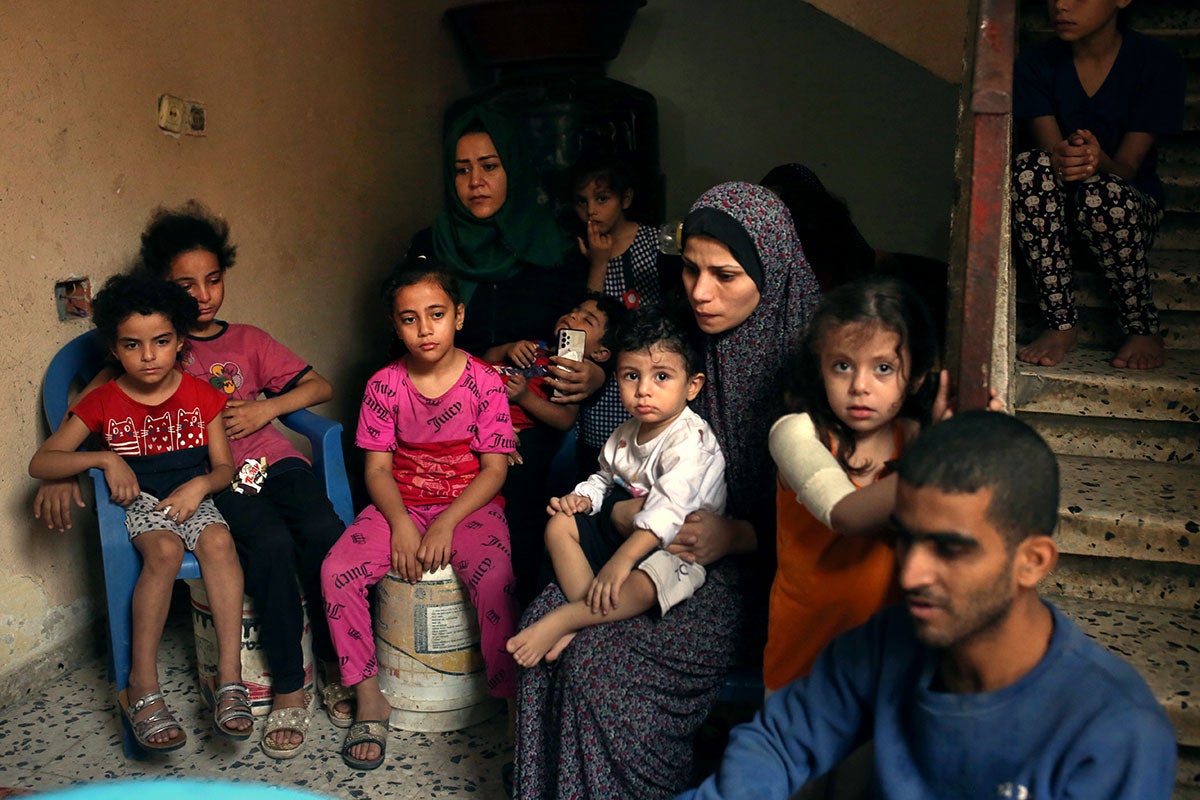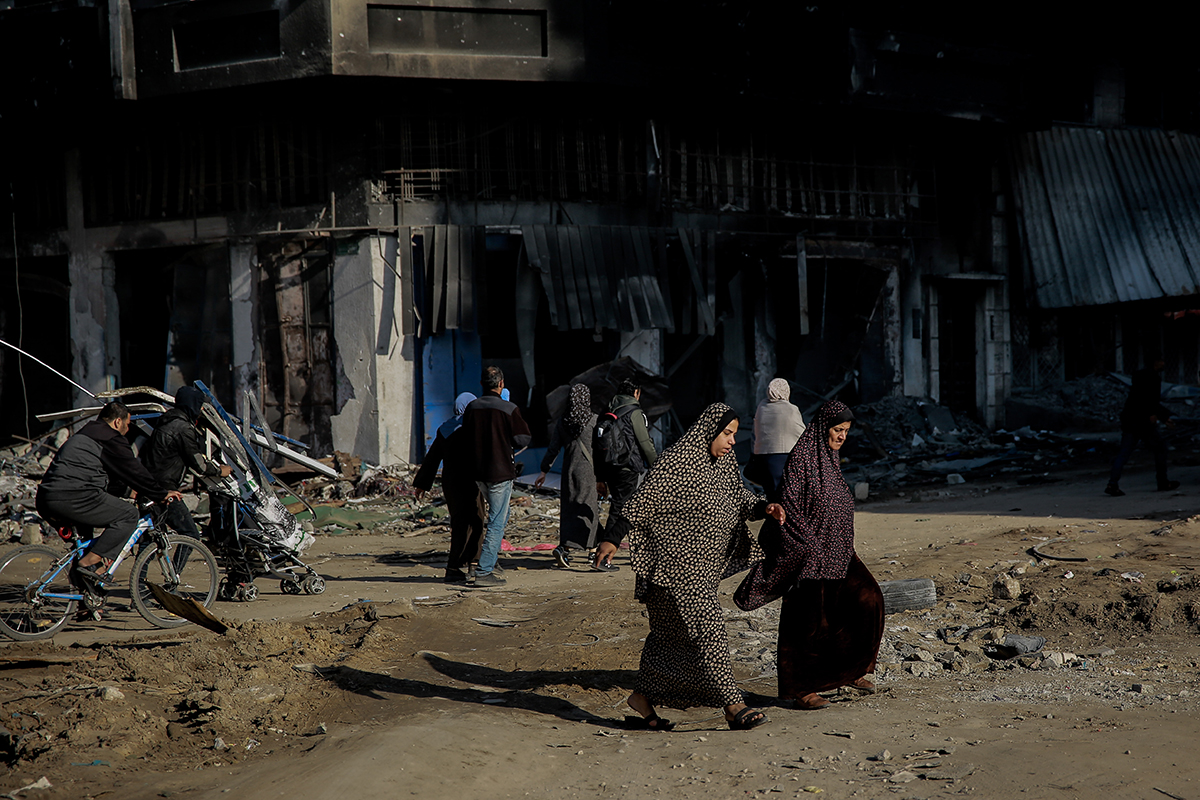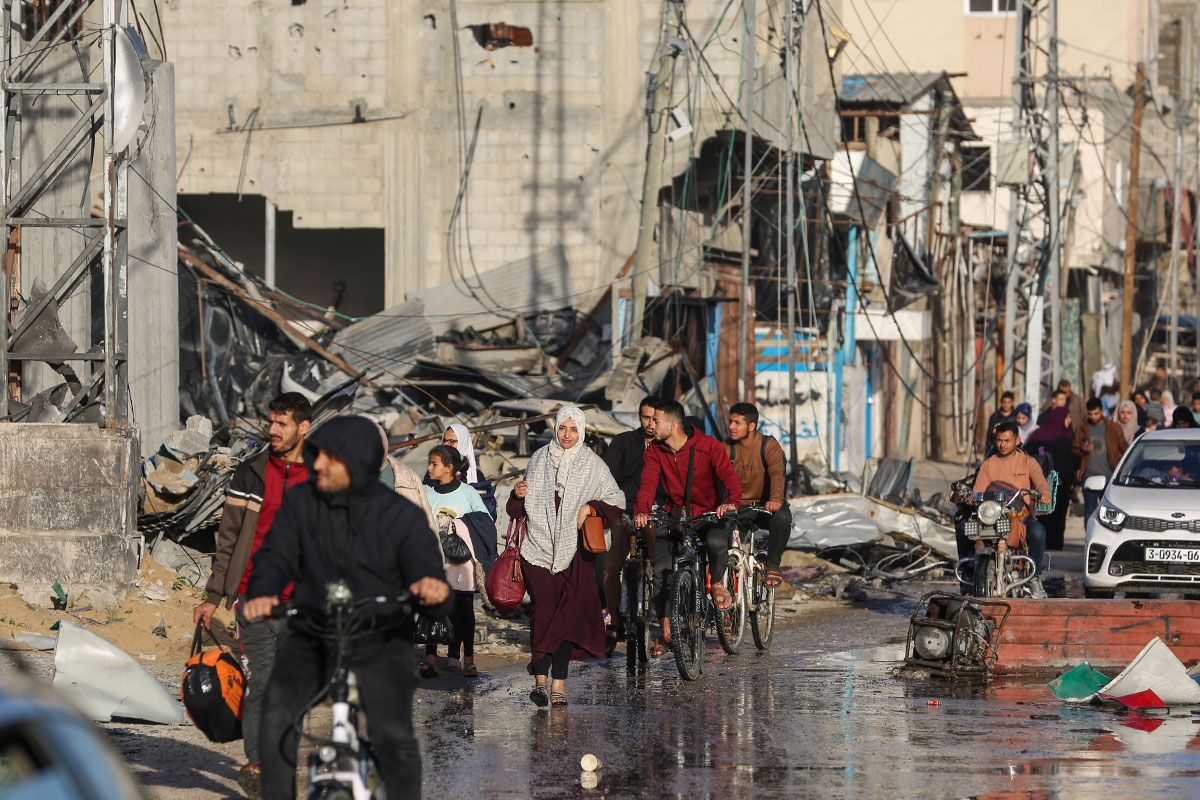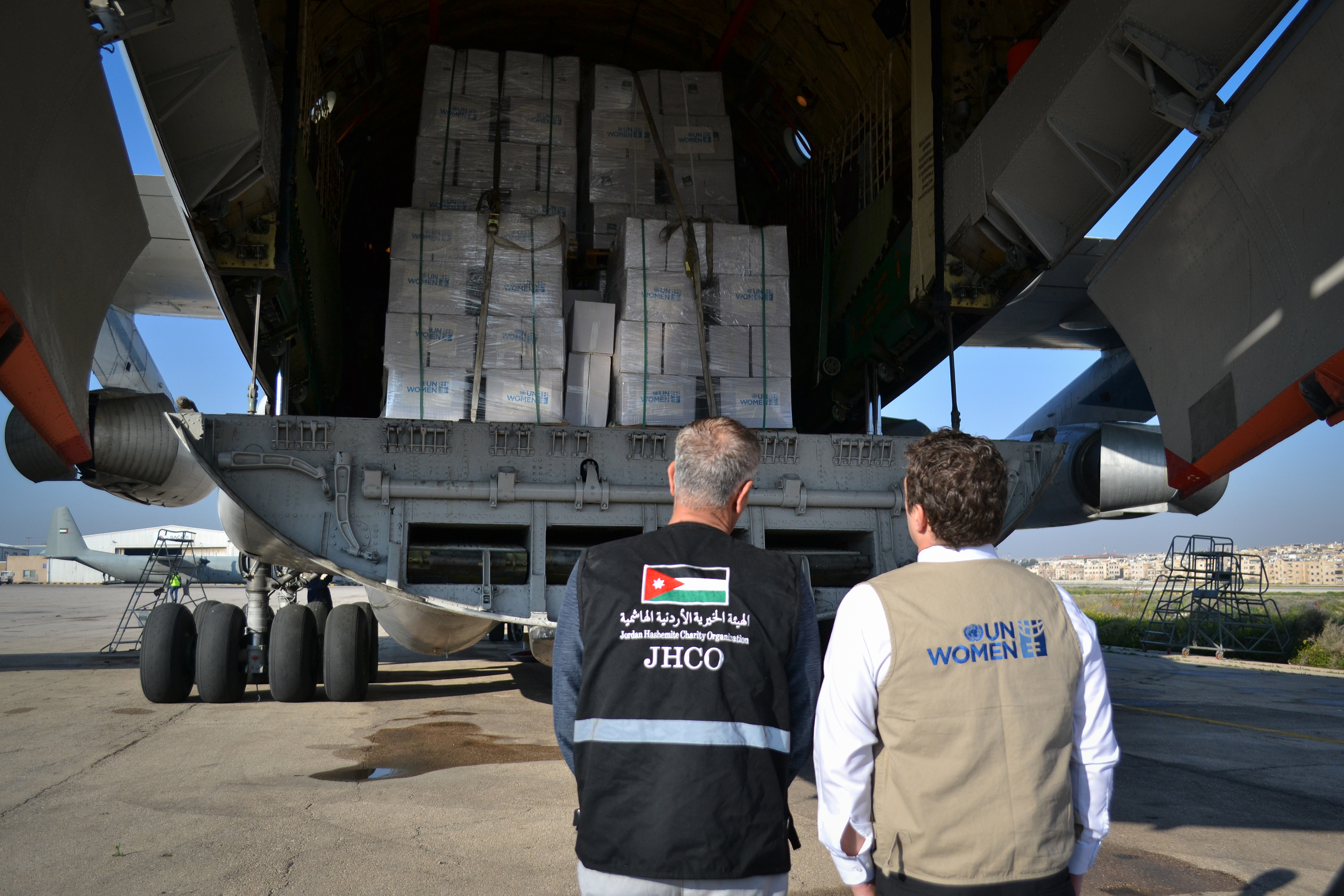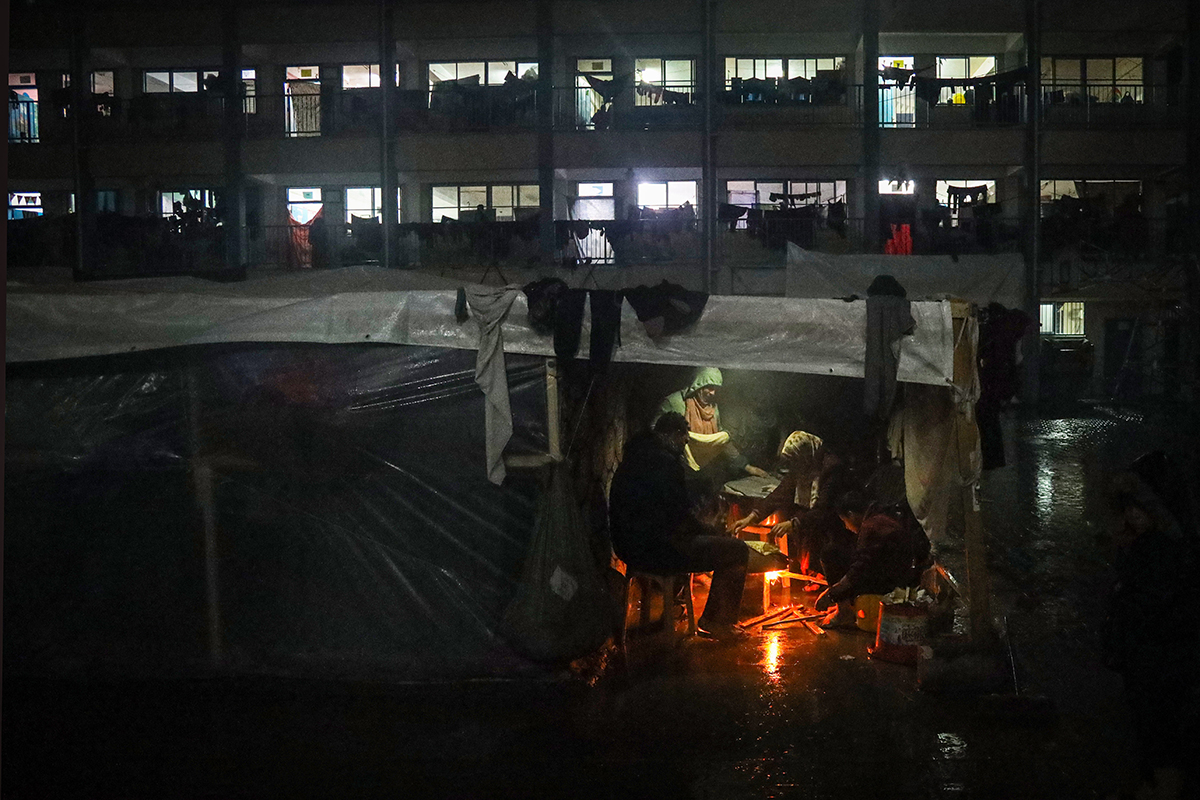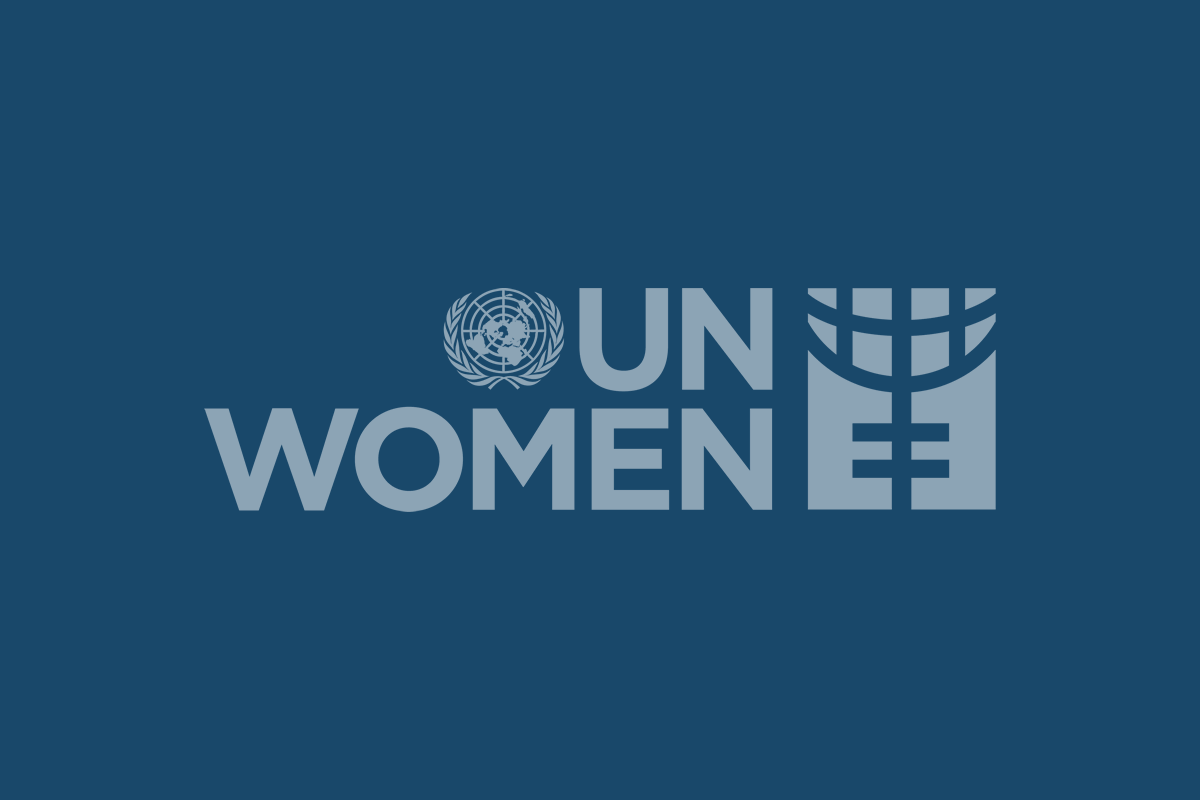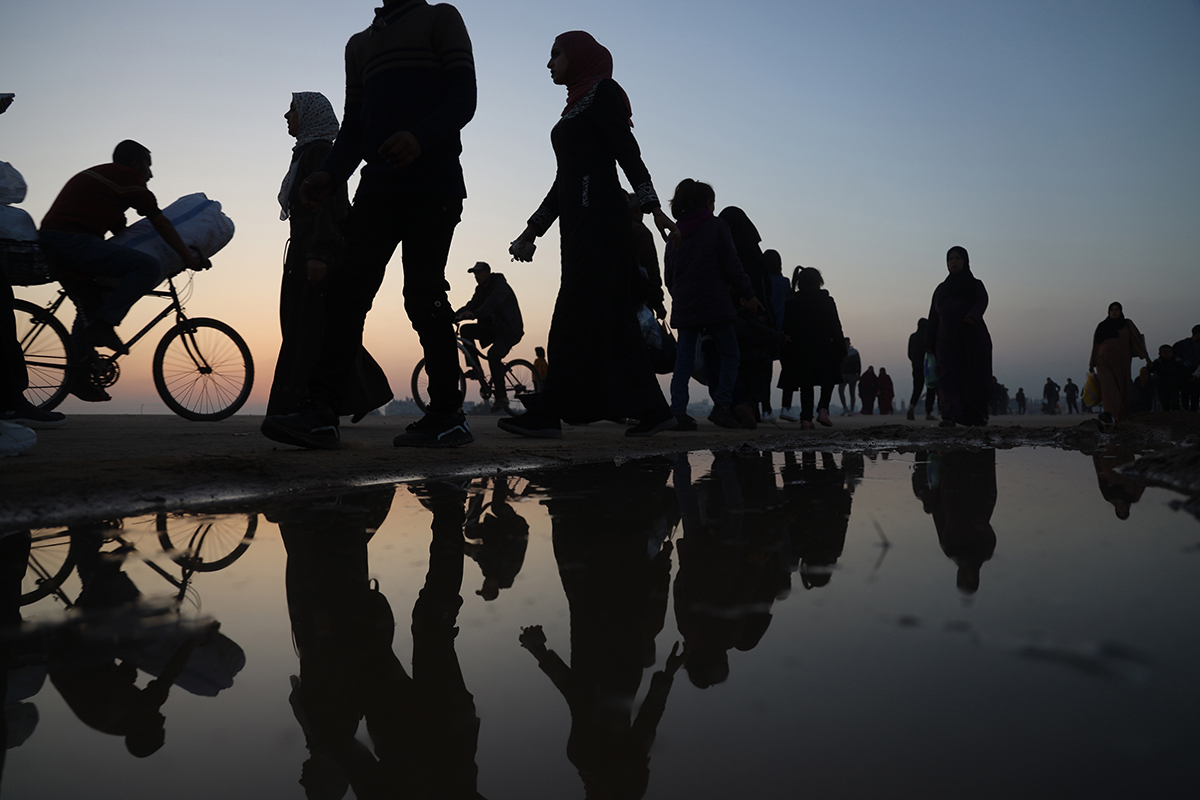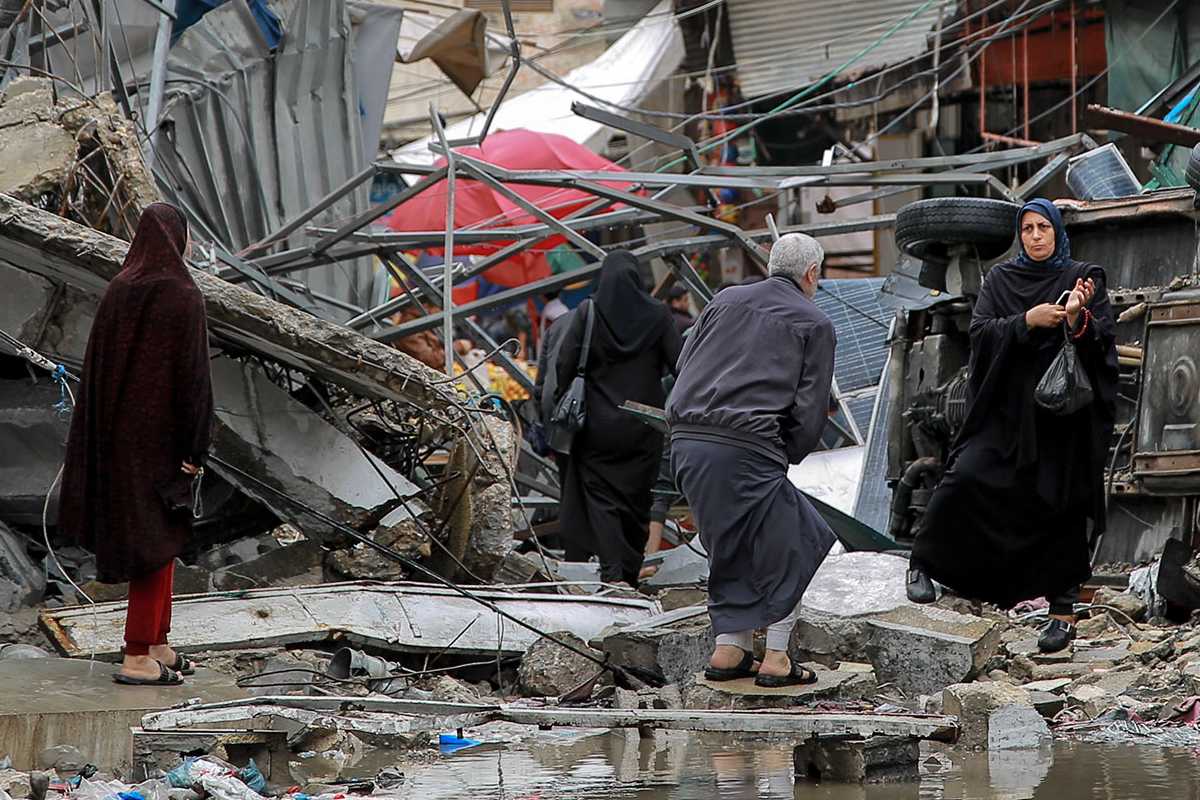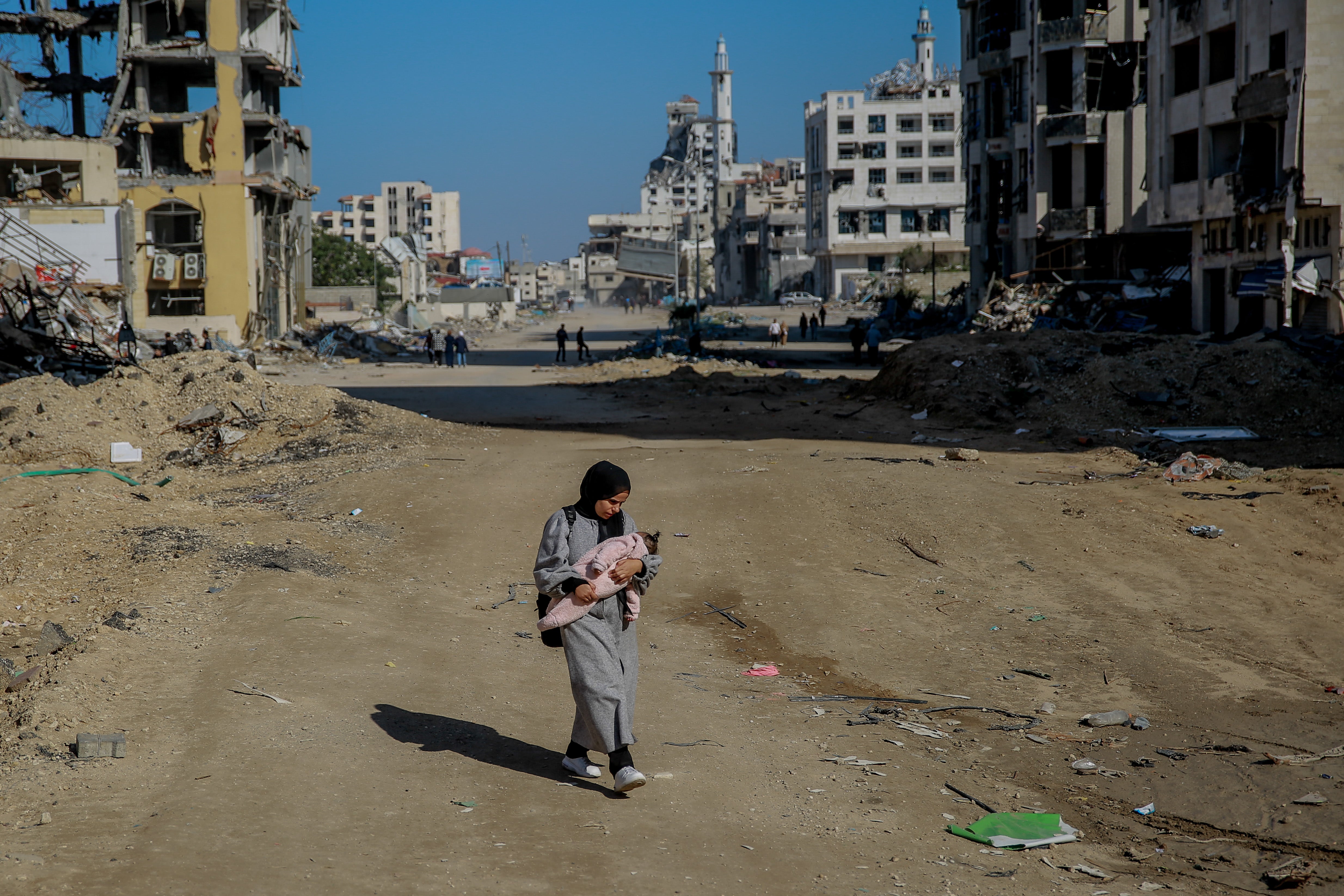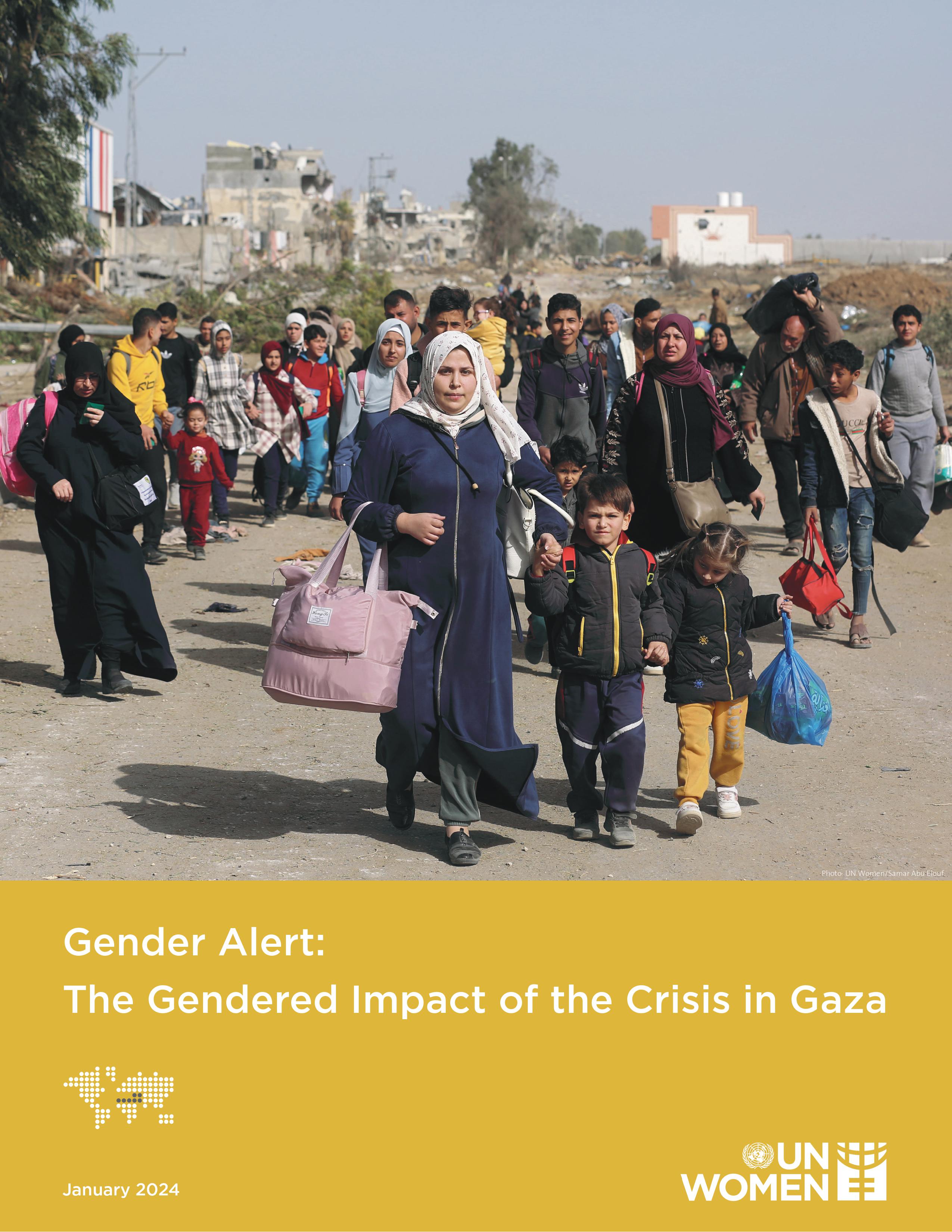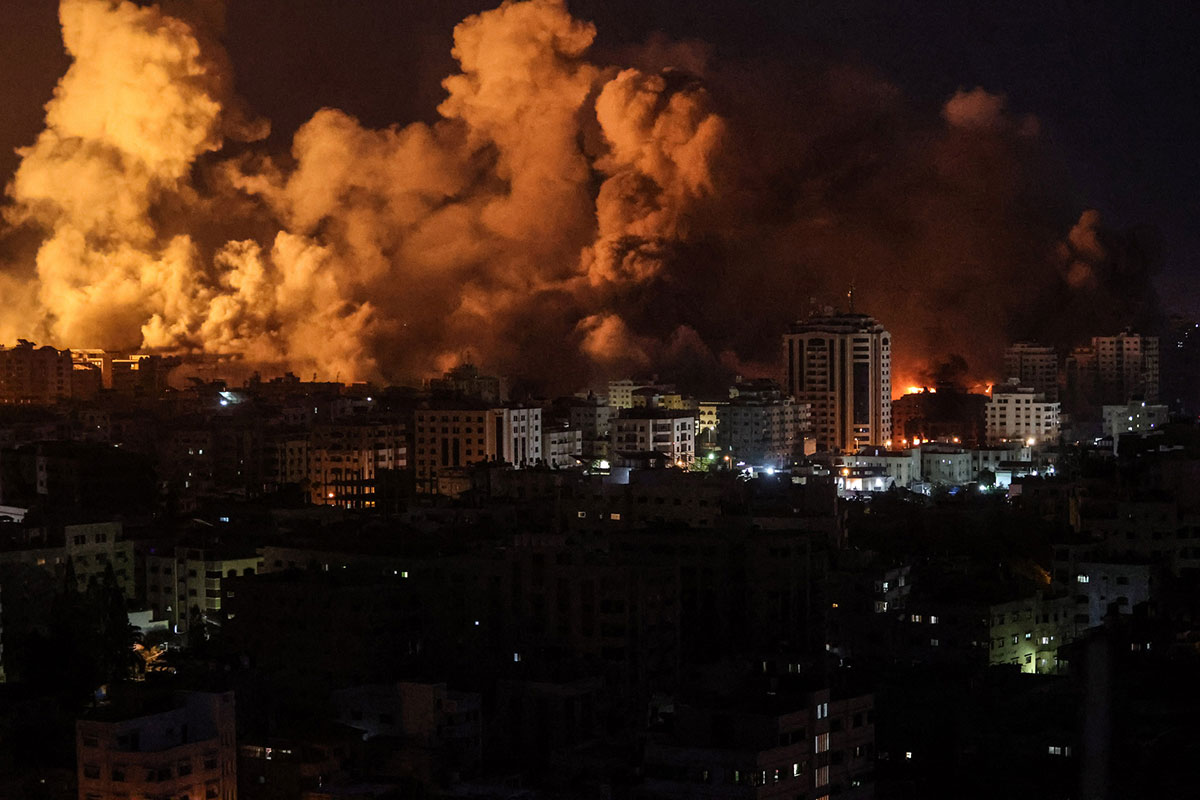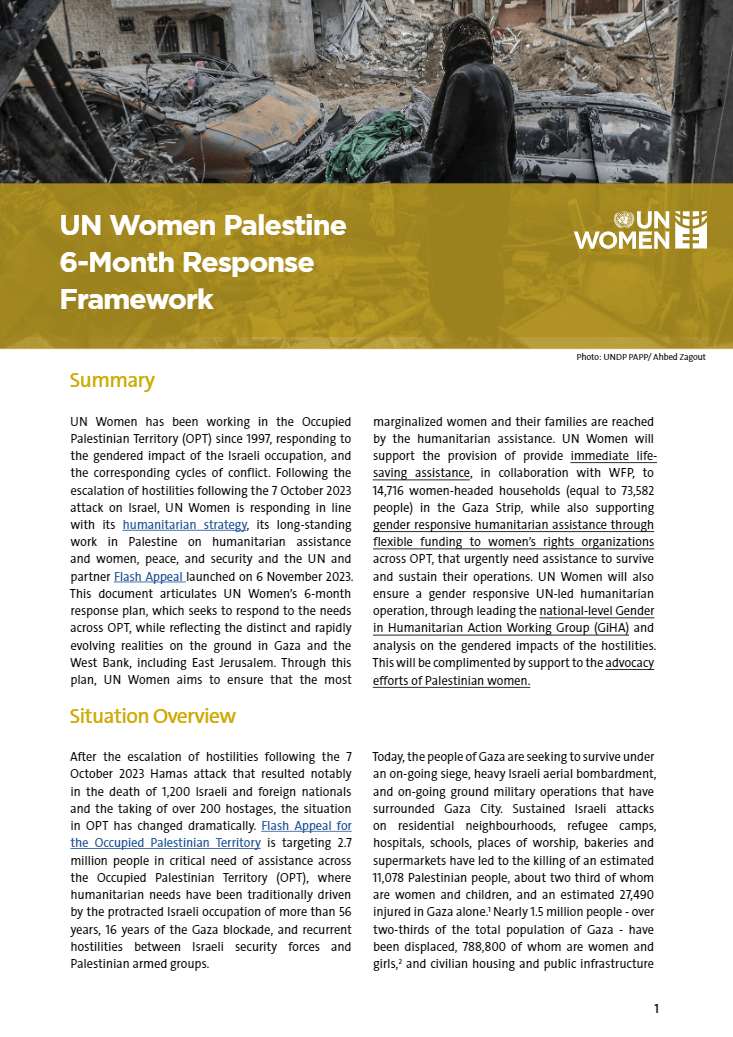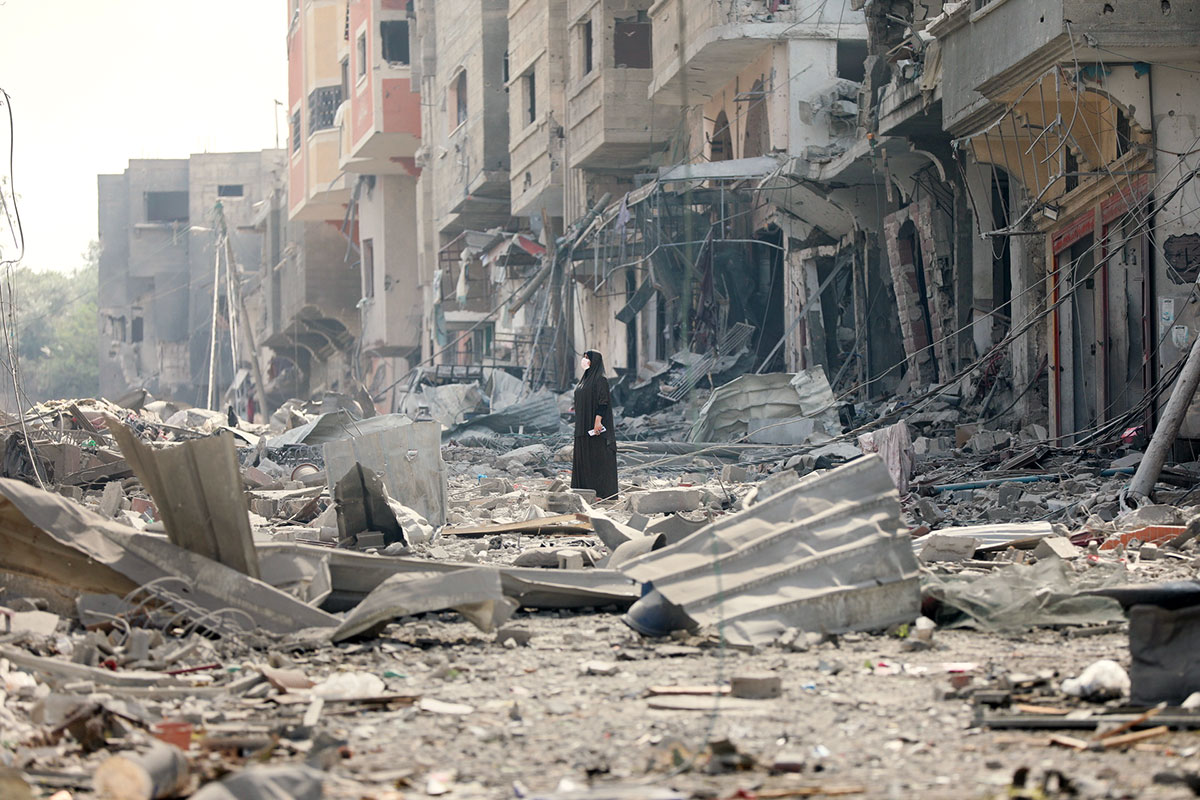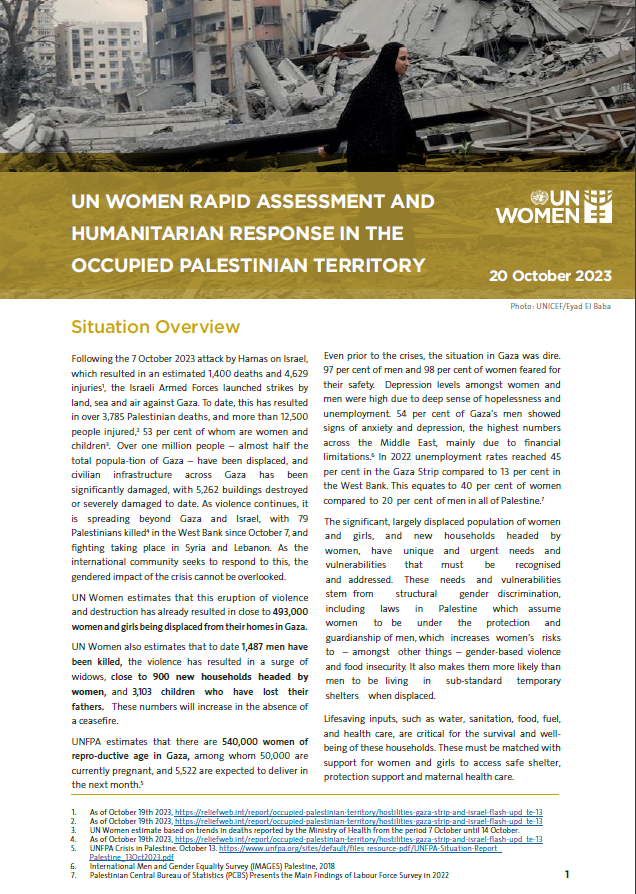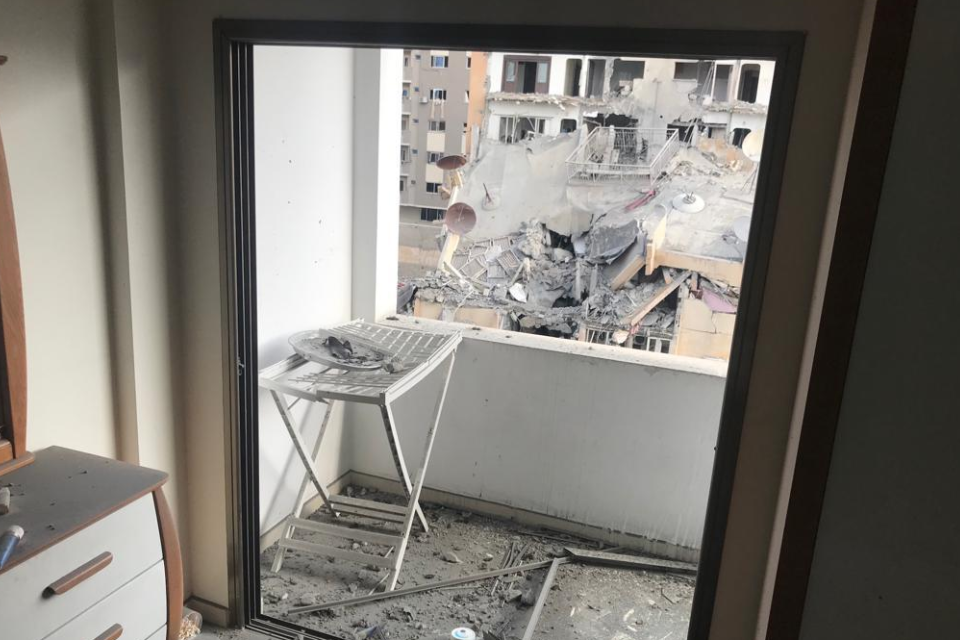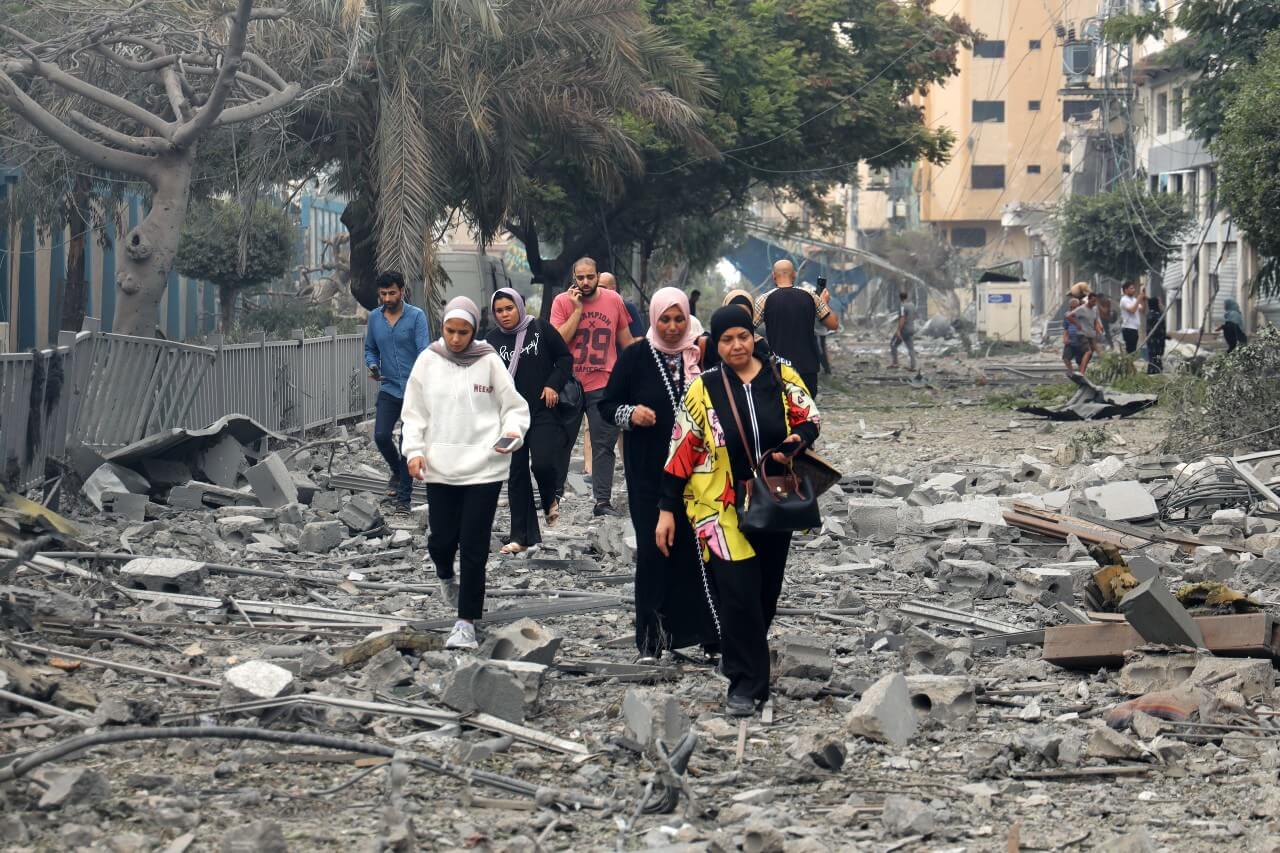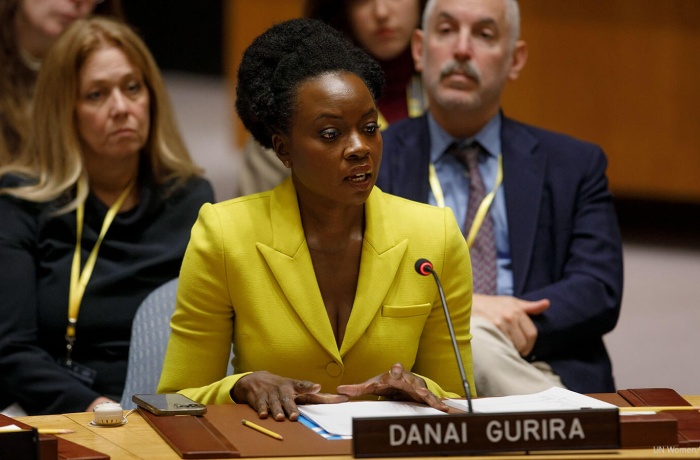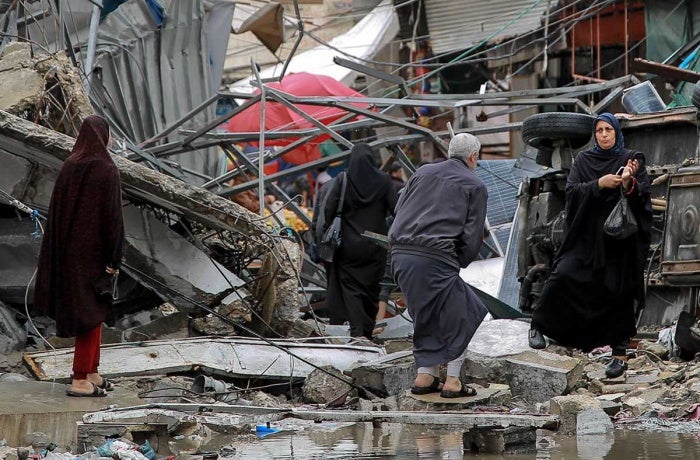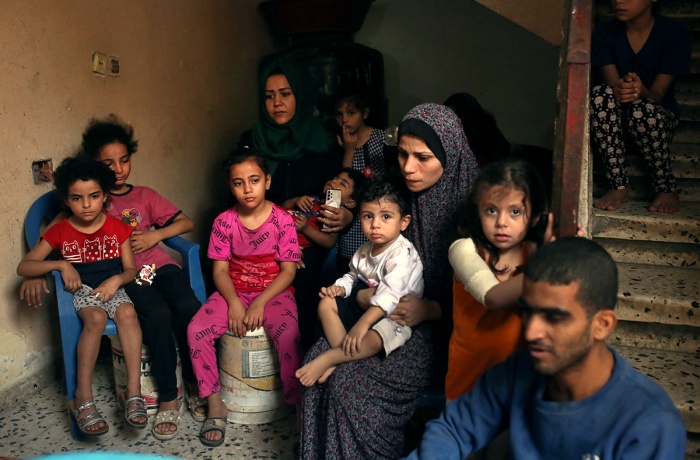In focus: The war in Gaza
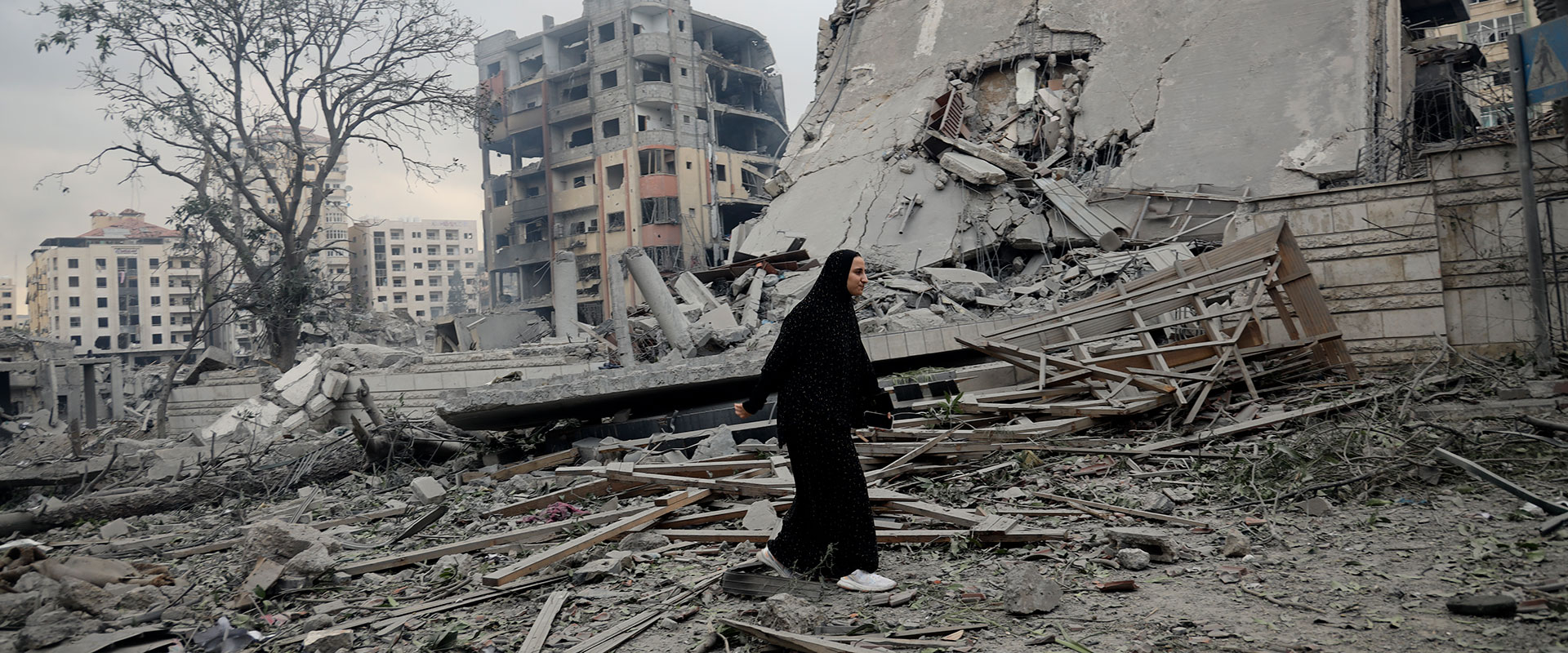
After the 7 October 2023 attack by Hamas on Israel, followed by the Israeli Armed Forces’ strikes on Gaza, UN Women has worked to analyse the differentiated impact on women, men, boys, and girls, to ensure adequate responses to their needs.
As the crisis passed its sixth month, more than 10,000 women have been killed in Gaza, and more than 19,000 injured. More than 4 out of 5 women (84 per cent) report that their family eats half or less of the food they used to before the war began, and 87 per cent report finding it harder to access food than men.
“We are witnessing a destruction and killing of civilians, UN personnel, humanitarians, and journalists at an unprecedented scale”, said UN Women Executive Director Sima Bahous in a recent speech. UN Women calls for immediate implementation of the resolution adopted by the Security Council demanding an immediate ceasefire in Gaza,
“We call on the immediate and safe delivery of humanitarian aid across Gaza, the release of all hostages, an end to occupation, and for a return to a path to peace, a peace that is just and comprehensive and that is inclusive of the crucial voices and leadership of women”, Bahous said. “This is our only hope for the future we want.”
See below to read more from the women affected by the war and what UN Women is doing amid this humanitarian catastrophe.






